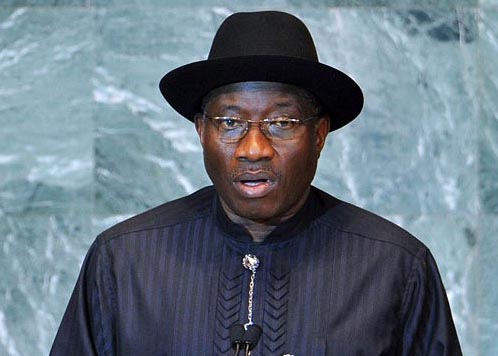The Federal Government has challenged the National Economic Summit Group to review the policy foundation of Nigeria’s education sector, developed in 1969, to meet current realities.
President Goodluck Ebele Jonathan gave this charge at the opening ceremony of the 20th Nigeria Economic Summit, with the theme: “Transforming Education through Partnership for Global Competitiveness,” which was held on Tuesday in Abuja.
The President, who spoke through the Vice President, Architect Mohammed Namadi Sambo, said: “More than forty years after, this policy foundation is ripe for review, to determine its relevance and fine tune its adaptability to national objectives, in this 21st Century.
“It is my hope that this Summit will take up this challenge; by applying itself rigorously to the design of an ideal education system that will satisfy our national needs and aspirations.”
Jonathan stressed that his administration holds education in high premium, emphasising that education was key to accelerating national transformation and development.
He said: “Education has changed the destiny of nations, big and small, and we are determined to change our story for the very best.”
Accordingly, he said the government had identified access, quality and equity as the main strategic goals of Nigerian education, stressing that government had introduced several initiatives to achieve these goals.
Such initiatives include girl and boy-child education, the Almajiri System, teacher training and retraining, increased funding and other far reaching policy reforms at all levels of the education system.
Jonathan called for more partnership between and among the three tiers of government, the private sector and international development partners in designing credible sectoral accountability frameworks that will impact positively on the sector.
“There is an urgent need to develop human capital, by investing and improving the skills of our people to facilitate the actualisation of our national objectives,” he stated.
The President urged stakeholders in the education sector to come up with practical solutions to surmount challenges of acquiring accurate statistics, especially at the basic and secondary levels, particularly on school enrolment and other education indices.
He said: “It is necessary that we get the numbers right to aid successful planning and decision-making.”
In his remarks the Supervising Minister of Education, Nyesom Wike, stated that the Transformation Agenda of the President Jonathan administration places premium on education as an instrument par excellence for human capital development and socio-economic emancipation.
Wike said to this end, the Federal Ministry of Education had developed a Road Map aimed at repositioning the sector.
He noted that the Road Map addresses issues relating to access and equity such as low enrolment, retention and transition, as well as low carrying capacity of tertiary education institutions.
High point of the event was a plenary session on Presidential Policy Dialogue, with Vice President Sambo standing in for President Jonathan.
The panellists included Ambassador Maryam Katagum, Prof. PAI Obanya, Dr. Elizabeth King, Maryam Lemu, Prof. Jibrila Amin and Paul Brennan.
Trending
- Ramadan: CAN congratulates Muslims, condemns Uromi killing
- President Tinubu hails Kehinde Bamigbetan at 60
- Eid: AANI congratulate Muslim members, Nigerians
- Eid-il-fitri: Atiku hails Muslims, wants leaders to show compassion
- Eid-el-Fitr: LASTMA hails Muslims, seeks traffic regulations compliance
- Edo Killing: IGP condemns mob action, orders FCID takeover of case
- Tinubu punished Fubara to get governors’ support for 2027 — Amaechi
- Hamzat appeals for patience with Tinubu’s policies


